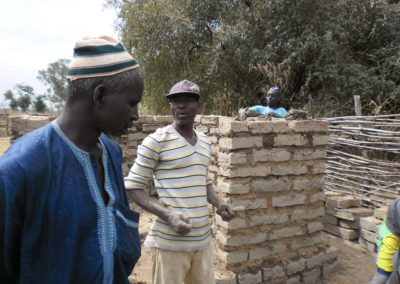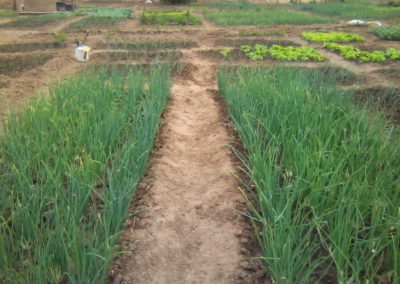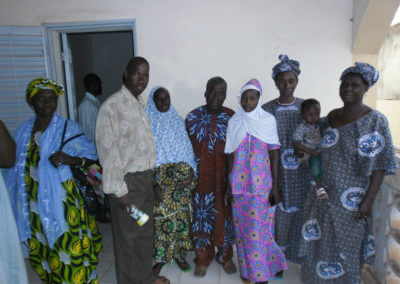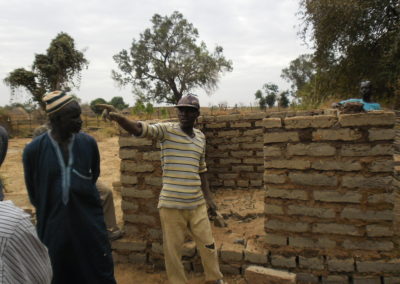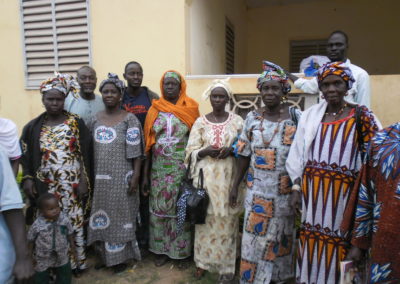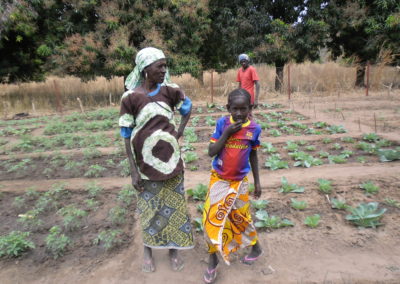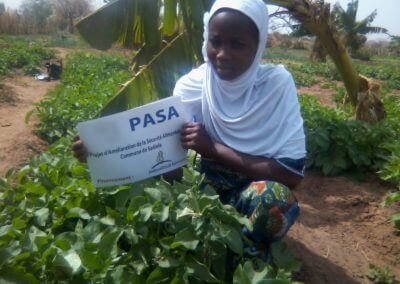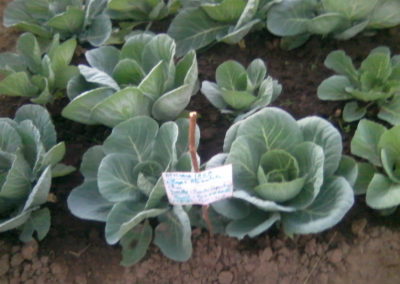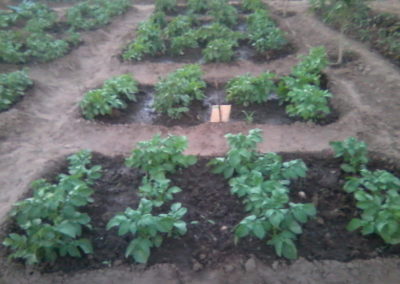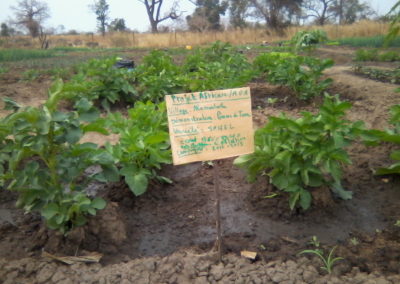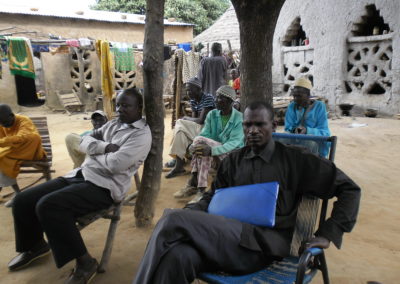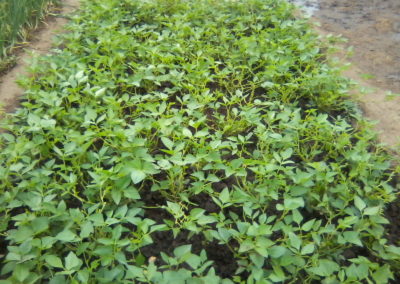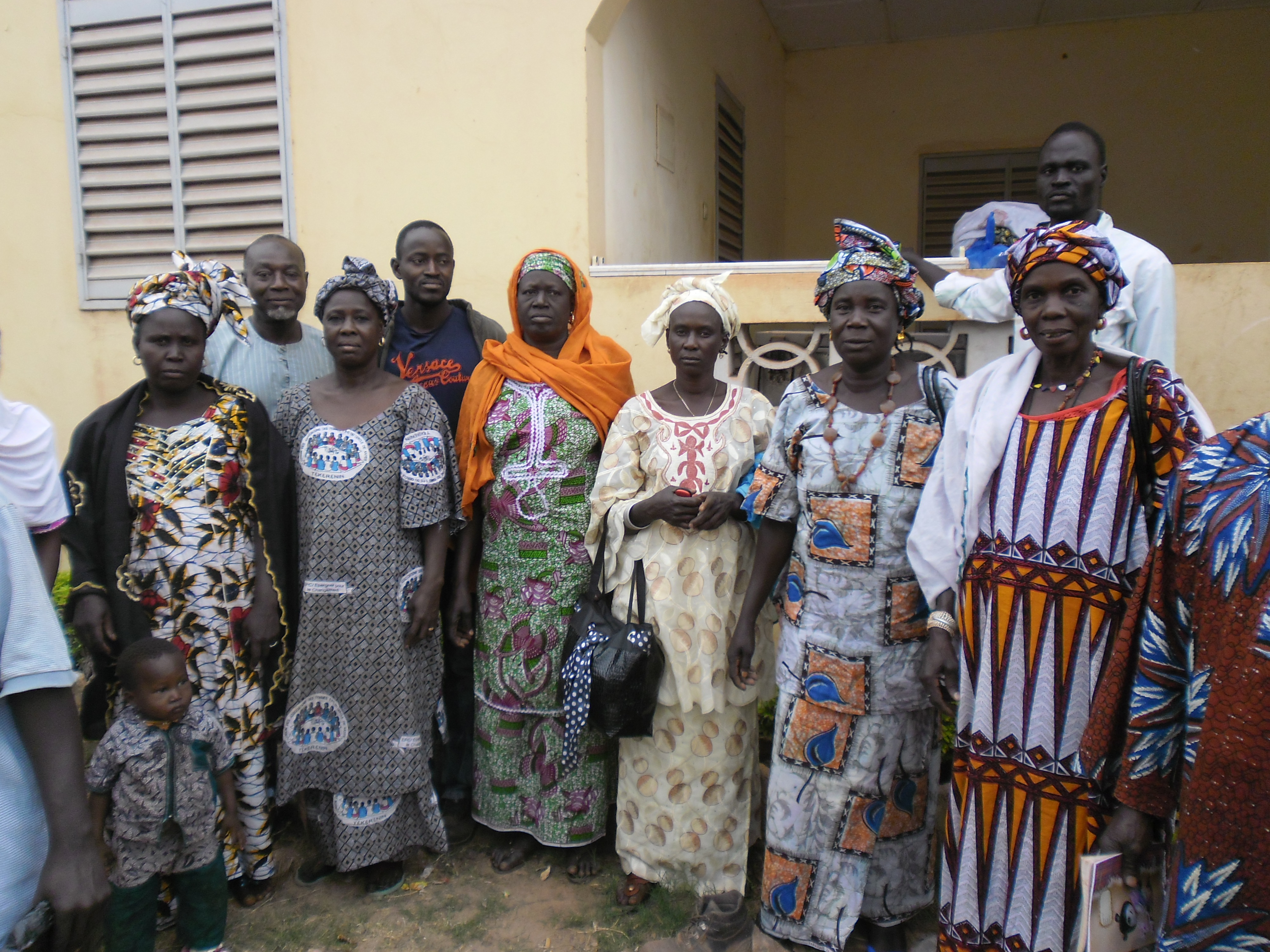
Seed Assistance project to women in the district of Sadiola, Region of Kayes, Mali
Agricultural production has endured an unfavorable decline across the country following a severe shortage of rainfall and the weakness of the flow in the various water streams. These two factors critical to agricultural production have negatively affected crop, vegetable and animal production, including in the zones of Western Sahel Belt and the central delta of Niger, which have been most affected. This situation has affected crops and pastures in many areas, including those of Sadiola (Kayes region). In order to respond to the extremely high levels of food insecurity felt in this region, Anglo Gold Ashanti a Mining company operating in the region of Kayes since 1990 Solicited Africare to develop and implement the ASAP (Anglo Gold Seed Assistance Project) with a focus on kitchen garden development, grain store rehabilitation and beneficiaries capacity strengthening.
The objective of the project is to reduce food insecurity and increase food self-sufficiency through increased availability of food for consumption and improved management of food supply. Four hundred households in five villages with 80 households each were targeted for the project activities
Project Goals and Objectives
Goal: Reduce food insecurity and increase food self-sufficiency through increased availability of food for consumption and improved management of food
Objectives:
- Increased consistent supply of staple food crops through improved management of food supply throughout the year.
- Increased volume and consistent supply of nutritious foods through sustainable kitchen gardens cultivated with improved gardening techniques
Project achievements
- 400 vouchers distributed to 400households for purchase of seed
- $400 watering cans distributed to 400 households;
- 360 improved storage facilities, one per household are constructed
- 7 grain storage management committees put in place and trained on proper storage techniques;
- 7 Food Security Committees put in place and trained on Community Early Warning System and Emergency Response
- 35 members trained for food security committees (10 members, 5 committees)
- 400 households trained in kitchen garden techniques
- 6,40 hectares of horticulture developed
- 7 seed fairs held in villages

